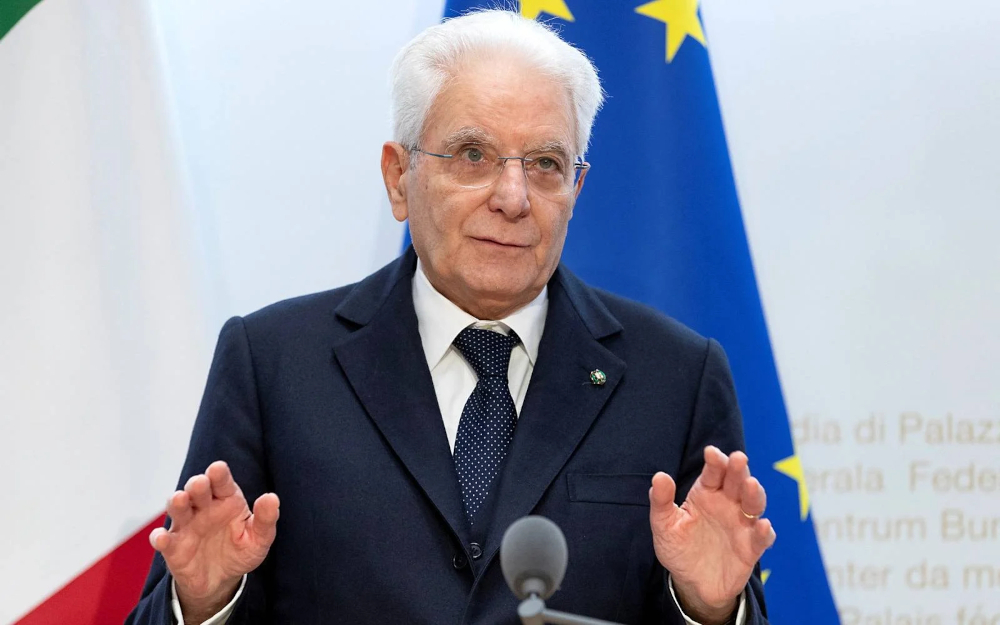A coalition of Italian cannabis organizations has unveiled a wide-ranging strategy to resist the government’s ban on hemp flowers, calling it unconstitutional, economically destructive, and contrary to EU law.
The coordinated response comes after Prime Minister Giorgia Meloni’s administration bypassed Parliament last week to enact a “Security Decree” that instantly reclassified industrial hemp flowers — regardless of THC content — as narcotics, effectively outlawing their cultivation, sale, and possession and essentially banning non-psychoactive cannabinoids like CBD, CBG, and CBN..
Industry advocates say the abrupt move threatens up to 30,000 jobs and imperils more than 3,000 businesses in a market worth nearly €2 billion.
In a joint statement, leading hemp associations including Canapa Sativa Italia Association, Sardinia Cannabis Association, Resilienza Italia Onlus Association, and Canapa Italia Entrepreneurs Association, said “the Security Decree represents a serious and immediate threat to all of us; however, we are moving together on every legal and institutional front to challenge its validity, constitutional legitimacy and consistency with EU law.”
Full-court press
The groups announced a multi-pronged campaign challenging the legality of the decree. Their actions include:
- Legal appeals: Immediate challenges will be filed with Italy’s Regional Administrative Courts (TAR), alongside motions raising constitutional questions and invoking EU law. Regional governments are being urged to file complaints with the Constitutional Court, citing violations of shared jurisdiction in agriculture and commerce.
- EU engagement: The groups are mobilizing foreign companies — including non-EU operators — to file formal complaints with the European Commission, aiming to trigger urgent scrutiny under free-movement-of-goods principles.
- Civil lawsuits and compensation claims: The coalition is preparing class-action suits under Italy’s civil code, seeking emergency injunctions and compensation for economic losses and disruption of legal business activity.
- Criminal defense and insurance: In the event of prosecutions, the associations pledge full legal support and will challenge charges as unconstitutional. They also advise stakeholders to obtain legal insurance to cover potential litigation costs.
- Grassroots mobilization: Operators are encouraged to join the associations, report enforcement actions, support a legal fund through donations, and help create a united legal front. Organizers emphasize that early court victories could set precedent with sector-wide impact.
A controversial decree
The decree stems from Article 18 of Italy’s broader Security Bill, initially approved by a legislative committee in mid-2023. It equates low-THC industrial hemp with high-THC marijuana, despite the fact that EU rules permit hemp products with THC content below 0.3%.
The measure had stalled in Parliament for months amid internal dissent. Citing public safety concerns, the Meloni government abruptly passed it via decree law on April 8, sidestepping further parliamentary debate. Enforcement is immediate, although lawmakers have 60 days to ratify the law permanently. The final decision could fall to President Sergio Mattarella, who can reject or delay the decree. He has yet to publicly express any position on the ban.
Critics say the ban violates the Italian Constitution by creating legal uncertainty and criminalizing activities previously deemed lawful. Legal experts argue it also runs afoul of the European Convention on Human Rights and EU trade rules.
“With a stroke of the pen, the government has decided to transform thousands of honest entrepreneurs into criminals,” said Imprenditori Canapa Italia, a trade group. Federcanapa, another cannabis association, warned that the decree lacked scientific basis and a transitional period, rendering it likely unconstitutional.
EU, industry reaction
The European Union has repeatedly upheld the legality of low-THC hemp products and CBD under internal market laws. A 2020 European Court of Justice ruling confirmed that CBD is not a narcotic, and member states cannot restrict its trade without clear health risks.
Italian hemp groups have long faced regulatory whiplash. After legalizing hemp with up to 0.6% THC in 2016, the government issued a series of contradictory circulars and decrees, including an attempt in August 2024 to reclassify oral CBD as a narcotic — a move temporarily blocked by an Italian court.
In March 2025, the European Parliament’s Petitions Committee issued a letter of complaint to Rome after hearing testimony from Canapa Sativa Italia, but the European Commission has not yet taken formal action.
As Italy’s government presses ahead with its crackdown, hemp stakeholders are racing to secure legal victories and public support. “The collaboration of all operators is essential to defend a sector that, in recent years, has proven to be a driver of economic and social development and a bulwark of the made in Italy,” the group said, urging stakeholders to “join forces and demonstrate to the institutions and judges that the world of industrial hemp is not willing to silently suffer illogical and unconstitutional decisions.”

